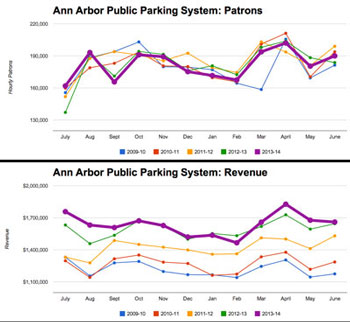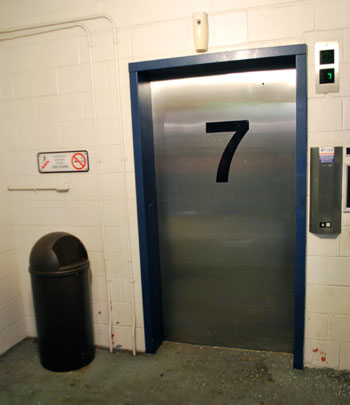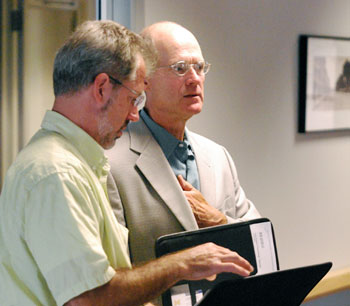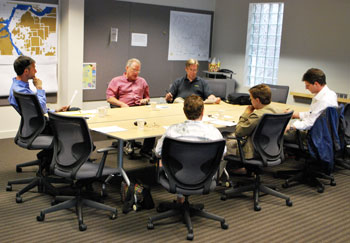Column: Parking Oversight, Please
On-street metered parking in and near downtown Ann Arbor costs $1.50 an hour. Rates have not been increased since September 2012. By the terms of the contract under which the Ann Arbor Downtown Development Authority (DDA) operates the parking system on behalf of the city, the DDA – not the city council – has the authority to raise rates.

Comparing the periods October 2012 through June 2012 to October 2013 through June 2014 – when rates have been constant – revenue has increased 1.20% to $14,647,274, while the number of hourly patrons has decreased by 1.65% to 1,661,256. (City of Ann Arbor public parking system data from the Ann Arbor Downtown Development Authority, charts by The Chronicle.)
What if on-street metered rates were raised a dime, and rates across other parts of the parking system were also raised by an equivalent percentage?
Although the DDA operates the parking system, that kind of 6.7% rate increase would directly benefit the city’s general fund. By how much?
First, any increase to the city’s general fund revenue is a function of the contract with the city of Ann Arbor, under which the DDA operates the roughly 8,000-space public parking system. The contract stipulates that the city receives 17% of gross parking system revenues.
Total parking system revenues are budgeted by the DDA for the 2015 fiscal year at about $19.3 million. So in ballpark numbers, the 17% equates to a roughly $3.2 million transfer to the city. Of that $3.2 million, about $2.3 million will go to the general fund, while the remaining amount will go to the fund the city uses to maintain downtown streets. That division of the transfer payment by the city has its historical roots in an arrangement between the city and the DDA that predated the existing contract.
So a 6.7% increase in rates across the parking system – assuming no decrease in the use of the system – works out to something like $150,000 more for the city of Ann Arbor’s general fund.
The city council’s role in setting parking rates is one of oversight, not decision-making. But even that oversight role is structurally somewhat weak – because decisions made by the DDA (to raise parking rates) can make the city council’s annual budget decisions somewhat easier.
The next scheduled opportunity for the Ann Arbor city council to exercise oversight of the DDA will be during a fall joint work session – which is stipulated to occur under terms of the city-DDA parking contract. That session is currently planned for Sept. 8.
The contractually stipulated work session would be a good opportunity for councilmembers to ask for metrics on Ann Arbor’s public parking system. Requested information should include stats that indicate how well Ann Arbor’s public parking system supports three different key user groups: (1) downtown employees; (2) retail/transactional customers and visitors; and (3) downtown residents.
Some data is collected routinely by the DDA from Republic Parking – its contractor for day-to-day operations – and shared publicly. That data is limited to revenue figures and numbers of hourly patrons. The routine data does not include hours parked by different categories of users – monthly permit holders and hourly patrons – which makes it difficult to evaluate the system’s support of different user groups.
Still, it’s possible to discern some patterns and to draw some conclusions about Ann Arbor’s parking system, based on the data the DDA does provide. Charts with commentary are presented below. [Full Story]






